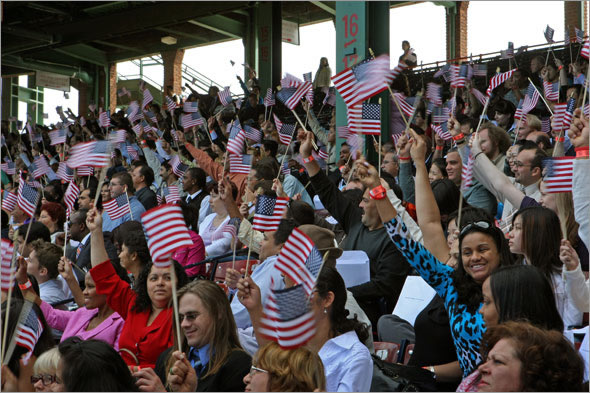
Many immigration clients, advocates, pundits, and commentators often overlook the little things that can make a big difference in court cases.
Like translators.
The role of interpreters seems a given to those who infrequently step into a courtroom. But those of us who live within those four walls day in and day out know the reality.
Good interpreters make a hugh difference.
Good interpreters ensure a modicum of due process.

According to AILA, ICE and contractors have started to conduct a “voluntary” 30-minute survey that affects Central American clients.
ICE has noted “answers to the survey will not be used for any enforcement purposes.”
So why worry?

Prior to my youngest son’s birth, my wife and I flew cross-country to attend my law school class reunion. She was in her first trimester of pregnancy.
I hardly considered the possibility of delivery on board the flight. However, premature births do happen. Sometimes they occur on plane rides between countries.
In such situations, determining the citizenship of the child can pose one of the most daunting questions of immigration law.

My father became a naturalized citizen in 1951. From start to finish, the paperwork took less than six months for the government to process.
His journey to the United States, the prelude to naturalization, was fraught with danger and discrimination, neither of which deterred him from his mission to provide a modest level of financial support for his mother and siblings living abroad in poverty.
When he was sworn in, he had no idea that one day he would vote in the presidential elections for John F. Kennedy.

2018 was an incredibly difficult year for immigrants, immigrant family members, immigrant rights advocates, and immigration lawyers.
So what might 2019 hold? Will immigration affairs remain bleak or will daylight start to shine again?
How should immigrants play their cards?

One hour, 10.5 minutes.
That’s how much time, on the average, an immigration judge had to dedicate to an immigrant’s case at the Los Angeles immigration court per year.
If you’re one of the thousands of Angelinos, who has been summoned to 606 South Olive, in overcrowded Los Angeles, to an overcrowded court, consider yourself lucky.
Immigration judges nationwide get less time to review similar matters.

Are you a family member of one of the estimated 2,000 – 6,000 Filipino World War Veterans living in the United States?
If you are, the odds are that you have been waiting many, many years to be reunited with your parents.

Like many immigrants who visit my office, Danny had run into problems when he tried to enter the United States.
It wasn’t the lack of entry documents.
It wasn’t due to an expired visa.
It wasn’t the result of a criminal history.
Rather, it was the lack of his ability to speak English fluently.

Ever wonder how a U.S. citizen is mistaken as an immigrant and deported?
The error is not uncommon.
Sometimes the reason is innocent ignorance. Most immigrants do not understand how various provisions of citizenship law work.
They might be a citizen by operation of law but they do not realize it.
Or through a grandparent born in the U.S. who could have passed on such U.S. status to a son or daughter, but they did not claim citizenship for over an entire generation.
Often they know they are a citizen but they do not know how to prove it.

I was not surprised when Jose lost.
Even though his case had some complicated twists, it was not unwinnable.
What was his fatal mistake?














